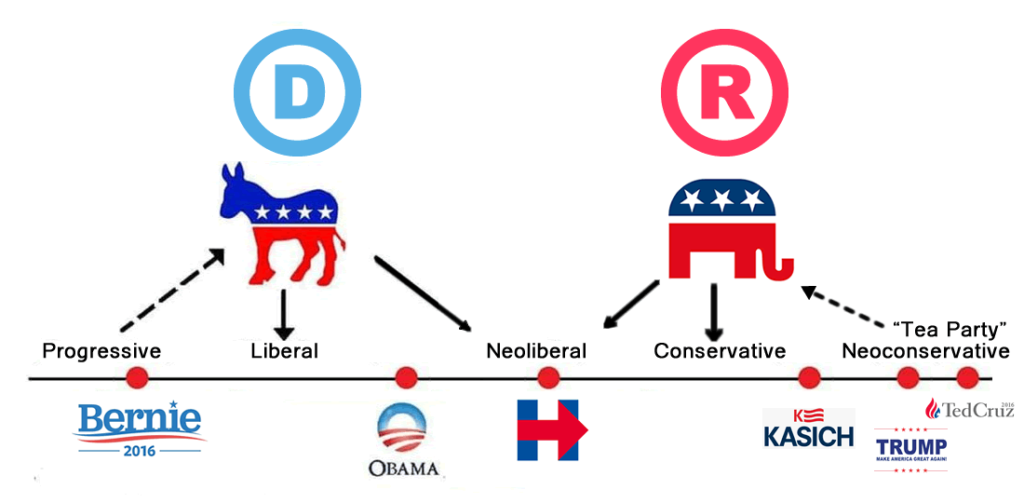
Post Preview
Moderate political philosophy is a philosophical system that balances individual rights with the needs and interests of the entire community. Its main principles are:
- Wealth redistribution.
- Hobbes’ authoritarian version of the social contract.
- Tolerance of mistakes.
- The rule of law.
The philosophy was popularized in the 1920s when the Mensheviks seized power in Russia and declared themselves illegal. They were eventually liquidated in the end. However, the philosopher Vincent E. Starzinger, in his book “The Politics of the Center,” pointed out that the politics of moderation are not remarkably realistic in most relevant societies.
Moderate political philosophy
The moderate political philosophy is not a new player on the political scene, but it has not received the recognition it deserves. While extreme positions can be damaging, the moderate stands in the middle. An average values a well-balanced approach to problems, a position that avoids the extremes and allows for a better understanding of the issue. The moderate aims to create a consensus between various points of view and combine experience and observation with liberal political philosophy.
The ideologue worldview is often simplistic and comes with a sense of certainty that inspires public confidence. On the other hand, moderates tend to respect opposing views and look for nuggets of wisdom that can be polished and employed for the greater good. The difference between moderate and extreme ideas lies in their underlying philosophy. The moderate, in contrast, is more likely to favor the former over the latter.
Wealth redistribution
The political philosophy of wealth redistribution has various manifestations. The concept of redistribution may be a descriptive one or a political mechanism that involves redistribution in many or all aspects. Taiwan, for example, dramatically reduced income inequality over a decade. Studies have also examined diachronic redistribution. But, redistribution in all senses is not a single concept, nor is it always a good thing.
A key topic in redistribution discussions is whether or not to tax wealth to fund social programs. Many conservatives argue that this practice violates individual property rights. However, liberals often defend welfare states by presenting taxation as an infringement of property rights or an ‘enforced charity.’ Their arguments usually depend on particular and contentious conceptions of economic justice. However, this discussion should not be confused with arguments about the morality of wealth redistribution.
Hobbes’ authoritarian version of the contract
In his essay “On the Right of Man,” Thomas Hobbes argues that the sovereign should determine the proper forms of religious worship and that a citizen’s duty to obey his government does not trump his duty to God. Hobbes also argues that terms must be defined and relate to what people actually experience. Unfortunately, Hobbes’ essay reads like a dictionary, and many commentators debate whether Hobbes’ emphasis on the definition is a philosophical doctrine or simply an attempt to explain philosophical principles.
Although he made some critical points, his vision of society was not as enlightening as that of Machiavelli, who saw the effects of social chaos and decided that order must be imposed from above. This would be impossible for Hobbes to foresee the enormous scope of the state and its complex interface with society. Hobbes also did not predict the state’s power, which could starve, brutalize, and even kill its subjects.
Tolerance for errors
Tolerance for errors in moderation is a major part of liberal political philosophy. The bloody history of the 20th century has inspired many to support the concept. Philosophers like Herbert Marcuse have defended it, while critics like Preston King and Susan Mendus have questioned its validity. Some philosophers, however, think toleration is a Western ideology. We will look at some examples of toleration in moderation below.
Tolerance advocates have argued for the virtue of toleration by claiming that it is a pragmatic response to the diversity and variety of human societies. But, in reality, toleration is not based on total moral skepticism. It has its limitations. Moreover, toleration has the unintended consequence of allowing diverse views to be expressed. Tolerance for errors in moderation is a valuable concept, but it can be misused to justify a political position that is inimical to the values of the Western world.
Relationship between government and the living world
In moderate political philosophy, the relationship between government and the living world is defined as the “conduct of conduct.” For Foucault, the government is how people act toward and about one another. Government can change conduct in one direction or another. But what is government, and what are its limits? Is government an absolute or an exception? The answer depends on the type of philosophical approach used and the nature of the question being asked.
Political philosophers vary considerably in discussing the relationship between government and the living world. Some view individuals as holy, while others consider political institutions sacred. For some, political institutions are sacred, but they would be meaningless without humanity. Others debate which is more important to consider as the unit of political analysis: the individual or the group? This is the fundamental question dividing political philosophy.




